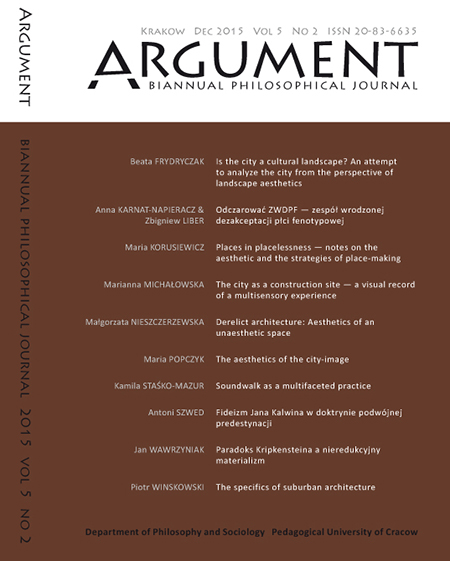The specifics of suburban architecture
Słowa kluczowe:
suburb architecture, suburb life pace, city centre space, suburb inside the city centre, potential of the suburbAbstrakt
The fundamental differences between the suburbs and the city centre that I would like to point out concern the pace of life and the intensity of urban development. Certainly, these differences are not absolute but are rather relative, as they are defined in relation to the surrounding neighbourhood that serves as a reference for self-determination. A suburb has some small-town traits, but its close location to the city prevents it from becoming a local centre. The same concerns the architecture whose intensity is, after all, a consequence of the increasing intensity in other aspects of life, the differentiationof sources of people’s income, the demand for services, trade contacts, etc. Its incompleteness, imperfection, slower pace and focus on anunattained and unattainable ideal can make one see in the suburb as a theoretically extremely promising area. Indeed, its promise lies in this aspect of failure, incompleteness and fragmentation — which is long lasting and relatively permanent. Many traits of suburban architecture are conservative; whereas others, such as its impermanence and improvisational qualities, are experimental and are characterised by an almost guerrilla-like aspect. However, present-day advanced postmodern thinking at times achieves an ability to take contradictory spatial, visual, artistic and functional characteristics and, through a theoretical analysis, make them into a complex ‘difficult whole’. Here, the combination itself is probably not so much harmonious but rather contains certain internal tensions, imbalances and longings of one opposite towards another. Anyway, this combination does take place and — in line with the direction of many diagnoses of contemporaneity — instead of creating abstract constructs, we must register the facts and try to conceptualise them.


